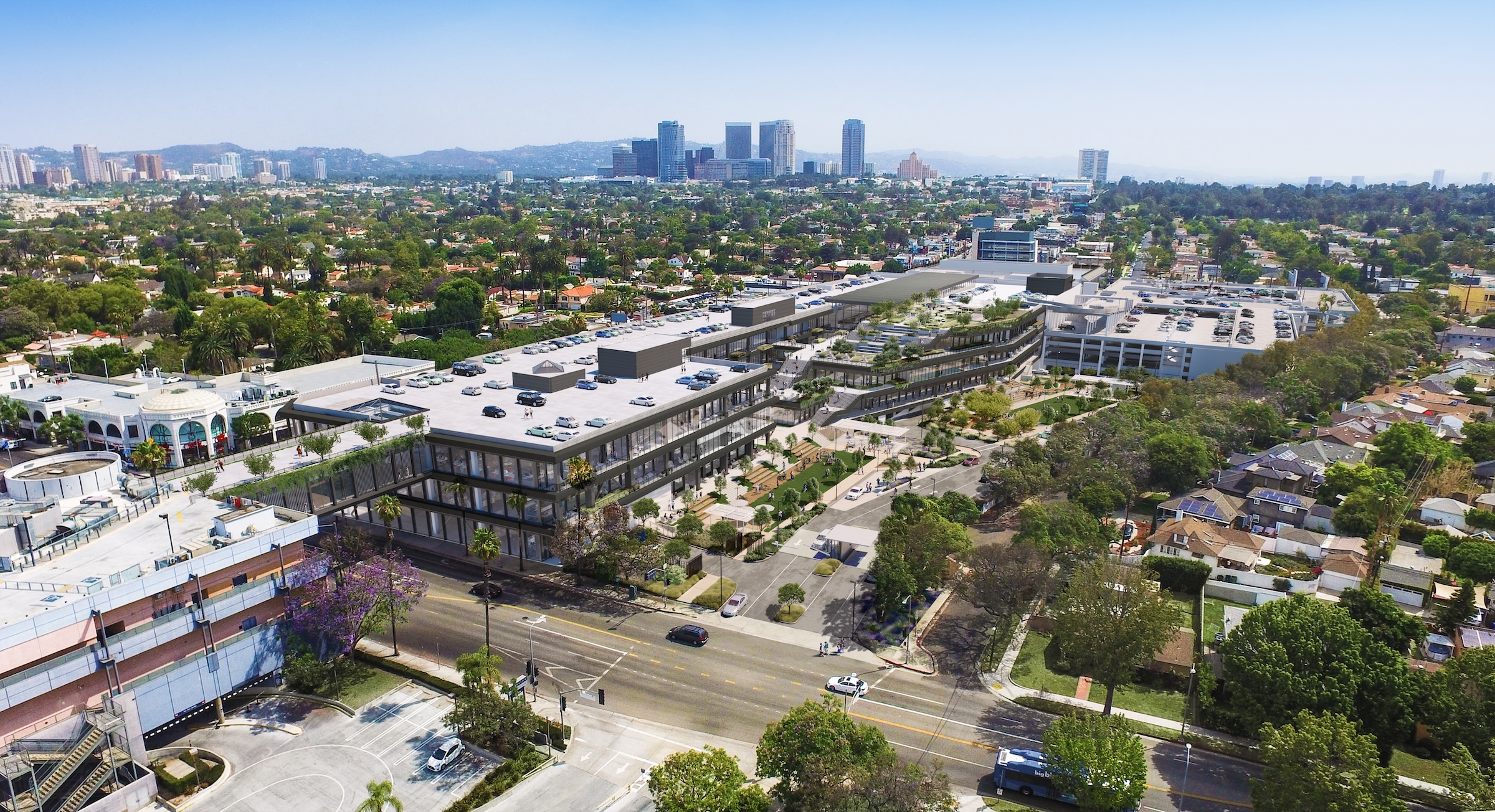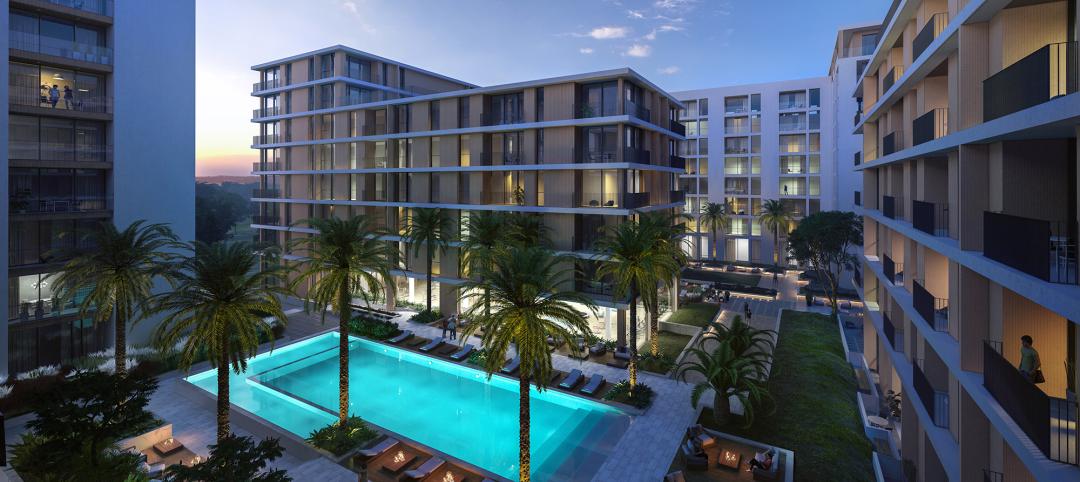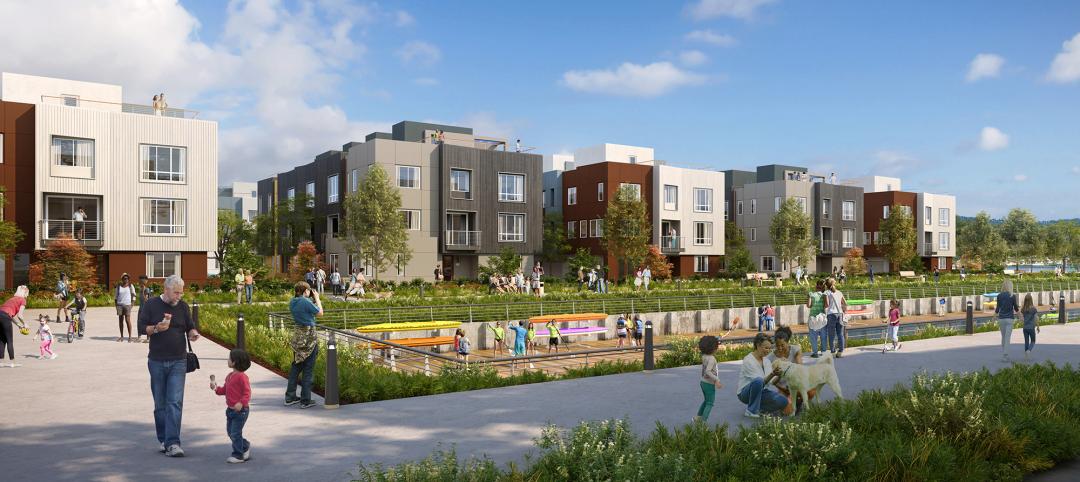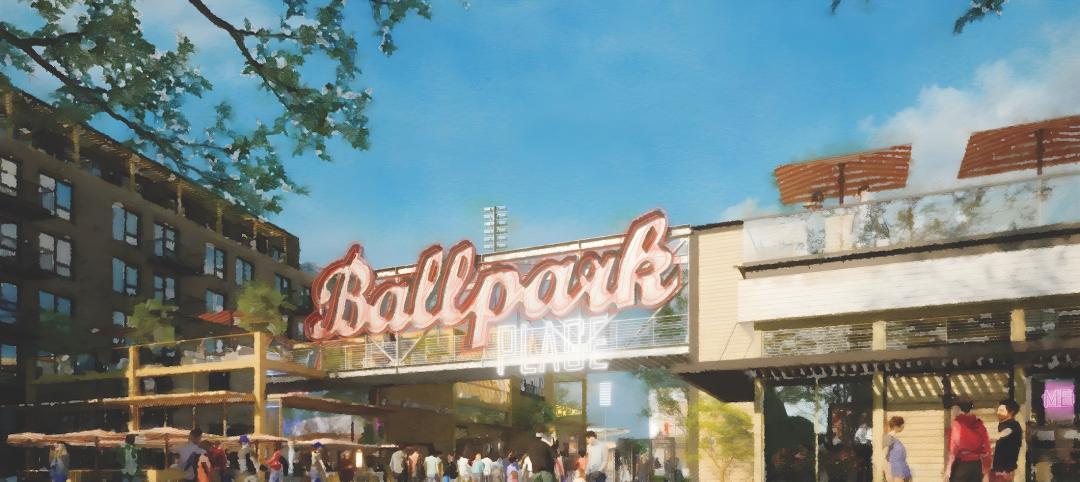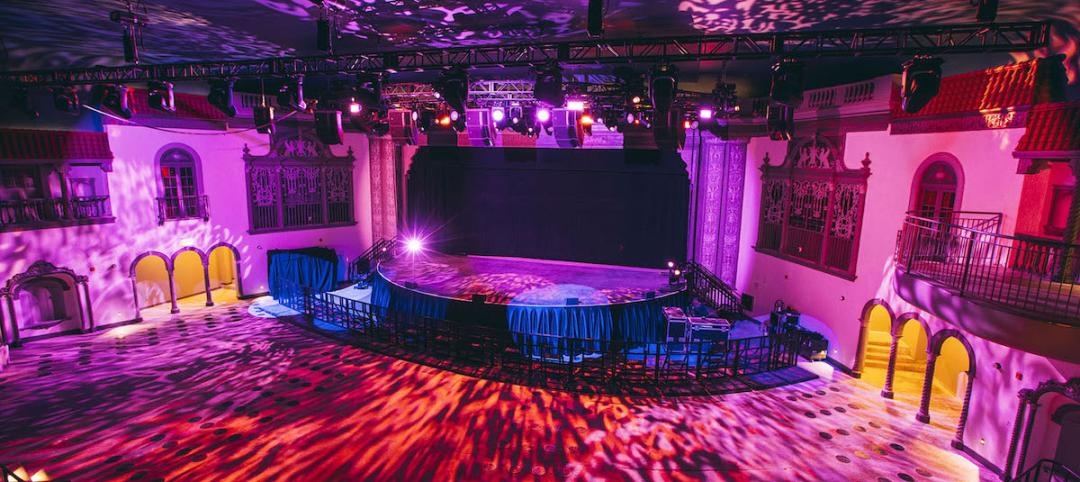UCLA recently acquired a former mall that it will convert into the UCLA Research Park that will house the California Institute for Immunology and Immunotherapy at UCLA and the UCLA Center for Quantum Science and Engineering, as well as programs across other disciplines. The 700,000-sf property, formerly the Westside Pavilion shopping mall, is two miles from the university’s main Westwood campus. Google, which previously leased part of the property, helped enable and support UCLA’s acquisition.
The Research Park will make use of the flexible work areas within the property. The expansive, high-ceilinged indoor space will be used for research laboratories and offices. The former mall also includes a 12-screen multiplex movie theater that may be converted into lecture halls or performance spaces, allowing UCLA to offer programming across the arts, humanities, sciences, and social sciences. The property is easily accessible by public transportation lines, including the Westwood/Rancho Park Metro station that connects directly to downtown. It is also minutes away from UCLA’s Westwood campus by bus.
The institute will draw on the expertise of UCLA faculty members, scholars from other higher education institutions, and other leading scientists and practitioners in clinical and biomedical scientific research, including human genetics, genomics, computer science, engineering, and information science. Researchers will pursue new tools, treatments and vaccines for cancer, autoimmune and immune deficiency disorders, infectious diseases, allergies, heart conditions, solid organ transplantation, and other major health-related issues.
The UCLA Research Park will also be home to the UCLA Center for Quantum Science and Engineering, which conducts research in the emerging field of quantum science and technology. Research explores quantum computing, communication, and sensing, with the aim of dramatically increasing information processing power by harnessing the unusual behavior of subatomic particles. Founded in 2018 and operated by the UCLA College’s Division of Physical Sciences and the UCLA Samueli School of Engineering, the center has received funding from Boeing and the National Science Foundation and includes more than two dozen UCLA faculty from the fields of physics, engineering, computer science, chemistry, mathematics, and biostatistics. The center will also house the Quantum Leap Challenge Institute for Present and Future Quantum Computation, an NSF-funded initiative that consists of eight universities.
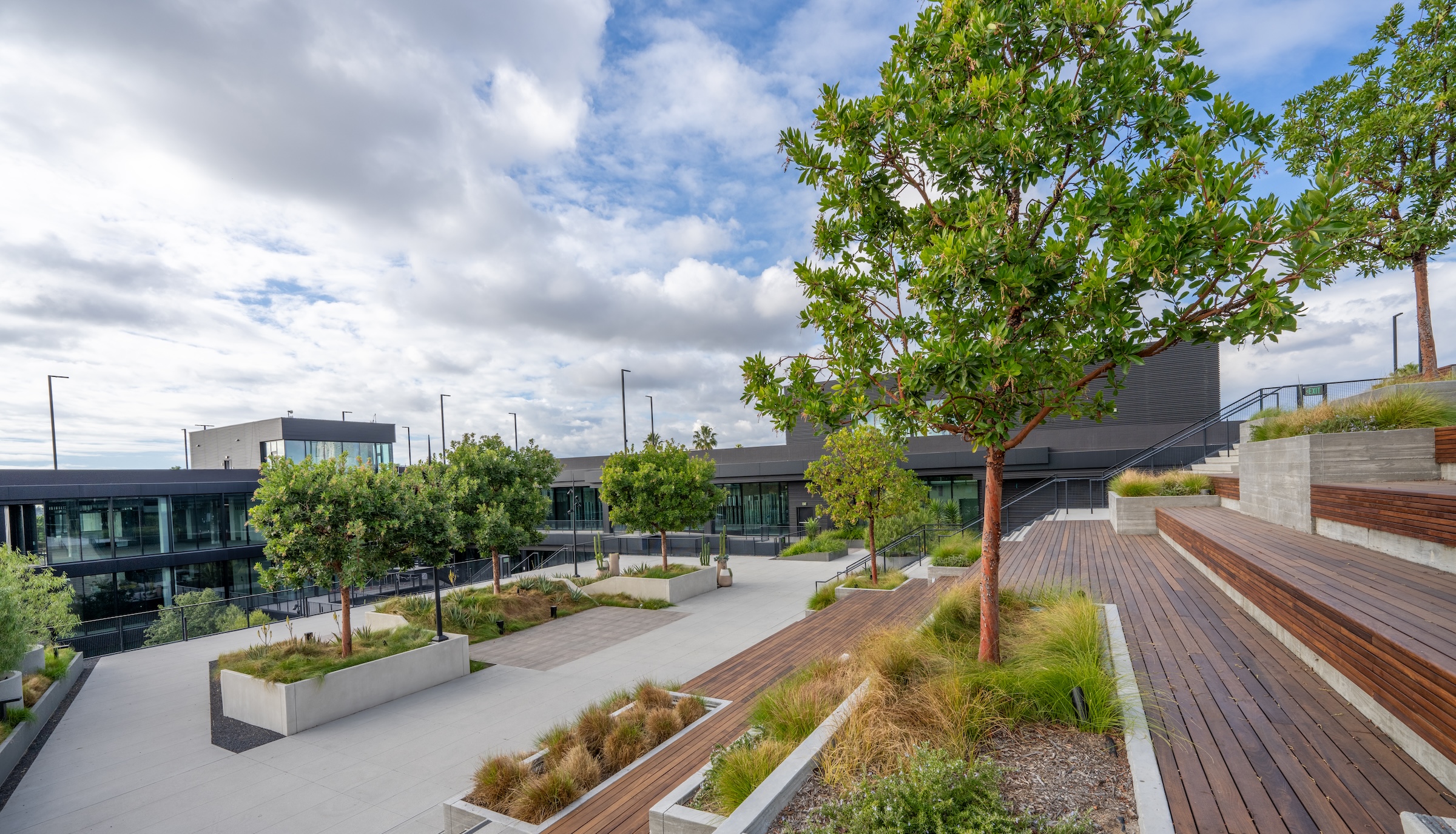
New space at the UCLA Research Park will facilitate greater collaboration between the quantum center and its partners and will solidify UCLA’s leadership role in this developing field, according to Miguel Garcia-Garibay, dean of physical sciences, and Alissa Park, dean of engineering.
This major acquisition—UCLA’s third in the past 15 months—is part of a transformative expansion designed to broadly extend resources and institutional expertise, deepen the campus’ connections to Los Angeles’ diverse and dynamic communities, and meet the growing demand for top-tier higher education across the city and region. Each acquisition has been an adaptive and sustainable development, repurposing existing structures for new uses while avoiding the need for major construction.
Owner and/or developer: UCLA
Design architect: Flad Architects
Other building team members have not yet been selected.
Here is the full press release from Flad Architects:
Flad Architects has been selected as Executive Architect for the UCLA Research Park Master Plan Study, which will include the development of a phased adaptive reuse master plan and demising plan to convert the former site of the 700,000-square-foot Westside Pavilion shopping mall into a new research park.
The research park will serve as a nexus for discovery and innovation, bringing together academic researchers, corporate partners, startups, and government agencies to advance fields of science and technology that have the potential to lead to previously unimaginable possibilities to address complex challenges.
Upon completion, the new Research Park will host two multidisciplinary research centers: the California Institute for Immunology and Immunotherapy at UCLA and the UCLA Center for Quantum Science and Engineering. The design will also include projections for future growth.
Uniting breakthroughs from biosciences, quantum science and engineering, and other emerging technologies has far-reaching potential to save lives and revolutionize healthcare outcomes.
The Institute for Immunology and Immunotherapy will draw on the expertise of UCLA faculty members, scholars from different higher education institutions, and other leading scientists and practitioners in clinical and biomedical scientific research. Researchers will pursue new tools, treatments and vaccines for cancer, autoimmune and immune deficiency disorders, infectious diseases, allergies, heart conditions, solid organ transplantation, and other major health-related issues.
Founded in 2018, the UCLA Center for Quantum Science and Engineering conducts research in the emerging field of quantum science and technology — including quantum computing, communication and sensing — to dramatically increase information processing power by harnessing the unusual behavior of subatomic particles. It is operated by the UCLA College’s Division of Physical Sciences and the UCLA Samueli School of Engineering.
The UCLA Research Park project is part of UCLA’s plan to expand the campus footprint through adaptive reuse and sustainable development, repurposing existing structures while avoiding the need for major new construction.
The expansion plan aims to greatly extend the university’s resources and institutional expertise, deepen the campus’ connections to Los Angeles’ diverse and dynamic communities, and meet the growing demand for top-tier higher education across the city and region.
Located on the 10800 block of West Pico Blvd., two miles south of the UCLA campus, the property consists of two buildings connected by an enclosed pedestrian bridge spanning Westwood Boulevard.
The project is scheduled to be completed in May 2027.
Related Stories
Adaptive Reuse | May 9, 2024
Hotels now account for over one-third of adaptive reuse projects
For the first time ever, hotel to apartment conversion projects have overtaken office-to-residential conversions.
MFPRO+ Special Reports | May 6, 2024
Top 10 trends in affordable housing
Among affordable housing developers today, there’s one commonality tying projects together: uncertainty. AEC firms share their latest insights and philosophies on the future of affordable housing in BD+C's 2023 Multifamily Annual Report.
Retail Centers | May 3, 2024
Outside Las Vegas, two unused office buildings will be turned into an open-air retail development
In Henderson, Nev., a city roughly 15 miles southeast of Las Vegas, 100,000 sf of unused office space will be turned into an open-air retail development called The Cliff. The $30 million adaptive reuse development will convert the site’s two office buildings into a destination for retail stores, chef-driven restaurants, and community entertainment.
Adaptive Reuse | Apr 29, 2024
6 characteristics of a successful adaptive reuse conversion
In the continuous battle against housing shortages and the surplus of vacant buildings, developers are turning their attention to the viability of adaptive reuse for their properties.
Mixed-Use | Apr 13, 2024
Former industrial marina gets adaptive reuse treatment
At its core, adaptive reuse is an active reimagining of the built environment in ways that serve the communities who use it. Successful adaptive reuse uncovers the latent potential in a place and uses it to meet people’s present needs.
Mixed-Use | Apr 9, 2024
A surging master-planned community in Utah gets its own entertainment district
Since its construction began two decades ago, Daybreak, the 4,100-acre master-planned community in South Jordan, Utah, has been a catalyst and model for regional growth. The latest addition is a 200-acre mixed-use entertainment district that will serve as a walkable and bikeable neighborhood within the community, anchored by a minor-league baseball park and a cinema/entertainment complex.
Adaptive Reuse | Apr 5, 2024
McHugh Construction completes restoration of Chicago’s historic Ramova Theatre
Adaptive reuse project turns 1929 cinema into a live performance venue, adds a brewery and a taproom, and revives the Ramova Grill in Chicago’s Bridgeport neighborhood.
Adaptive Reuse | Mar 30, 2024
Hotel vs. office: Different challenges in commercial to residential conversions
In the midst of a national housing shortage, developers are examining the viability of commercial to residential conversions as a solution to both problems.
Cultural Facilities | Mar 26, 2024
Renovation restores century-old Brooklyn Paramount Theater to its original use
The renovation of the iconic Brooklyn Paramount Theater restored the building to its original purpose as a movie theater and music performance venue. Long Island University had acquired the venue in the 1960s and repurposed it as the school’s basketball court.
Adaptive Reuse | Mar 26, 2024
Adaptive Reuse Scorecard released to help developers assess project viability
Lamar Johnson Collaborative announced the debut of the firm’s Adaptive Reuse Scorecard, a proprietary methodology to quickly analyze the viability of converting buildings to other uses.


